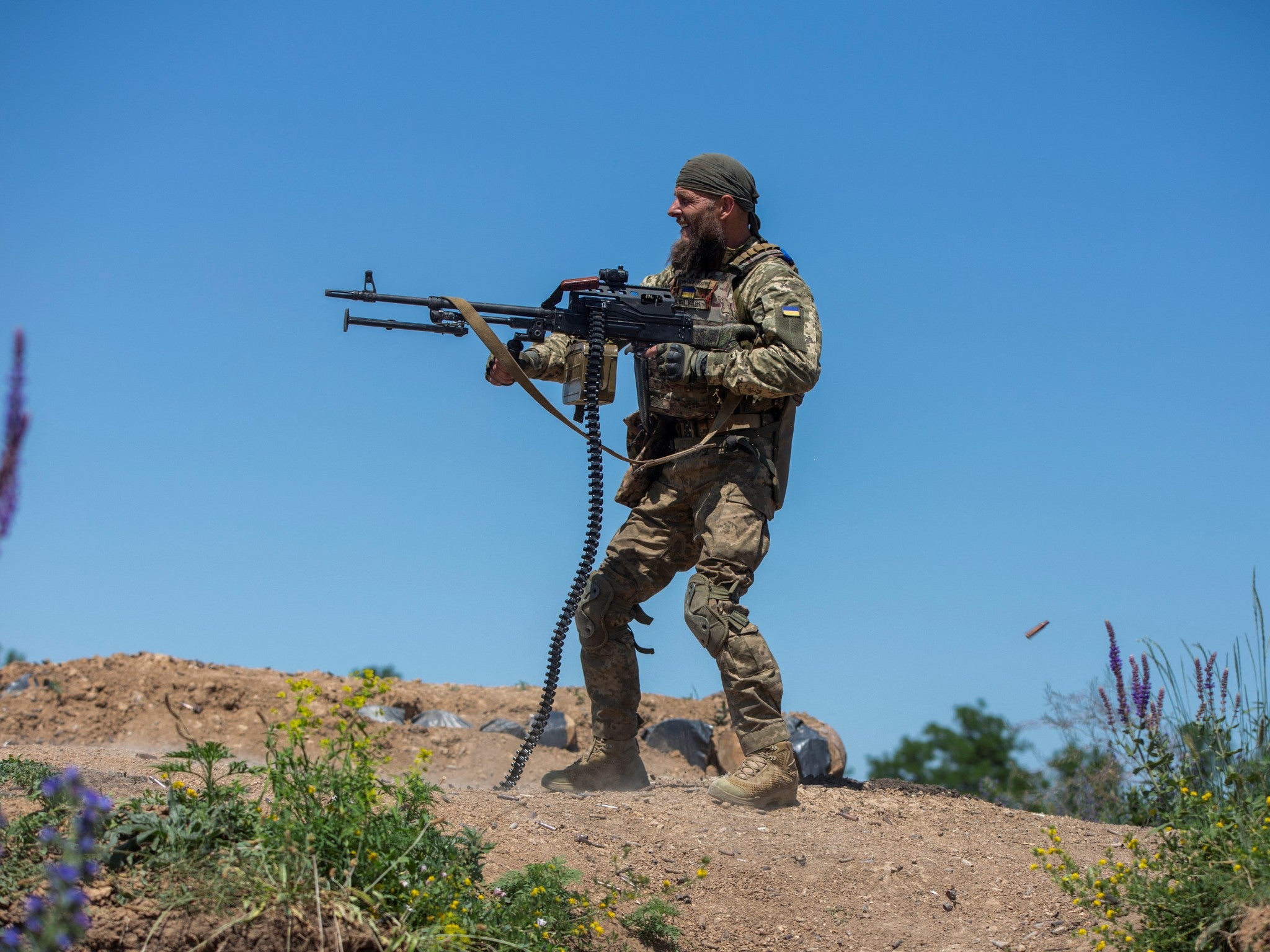Ukraine signals main counteroffensive push still to come
Officials say current operations are intended to ‘set up the battlefield’ and that there are more troops to be deployed

Your support helps us to tell the story
From reproductive rights to climate change to Big Tech, The Independent is on the ground when the story is developing. Whether it's investigating the financials of Elon Musk's pro-Trump PAC or producing our latest documentary, 'The A Word', which shines a light on the American women fighting for reproductive rights, we know how important it is to parse out the facts from the messaging.
At such a critical moment in US history, we need reporters on the ground. Your donation allows us to keep sending journalists to speak to both sides of the story.
The Independent is trusted by Americans across the entire political spectrum. And unlike many other quality news outlets, we choose not to lock Americans out of our reporting and analysis with paywalls. We believe quality journalism should be available to everyone, paid for by those who can afford it.
Your support makes all the difference.Ukraine has signalled that the main push in its counteroffensive against Russia’s troops is still to come – with key forces not yet deployed and the current operation intended to “set up the battlefield”.
Ukraine says it has retaken eight villages in the early stages of its most ambitious assault since Russia’s full-scale invasion 16 months ago, but President Volodymyr Zelensky said this week that gains had been “slower than desired.”
Addressing the pace of the Ukrainian advances, three senior officials sent the clearest signal yet that the main part of the counteroffensive has not yet begun.
“Offensive operations of the Armed Forces of Ukraine continue in a number of areas. Formation operations are under way to set up the battlefield,” presidential adviser Mykhailo Podolyak said on Twitter.
“The counteroffensive is not a new season of a Netflix show. There is no need to expect action and buy popcorn.”
The deputy defence minister Hanna Maliar said the “main events” of the counteroffensive were “ahead of us.”
“And the main blow is still to come. Indeed, some of the reserves – these are staged things – will be activated later,” Ms Maliar told Ukrainian television.
Although the advances Ukraine has reported this month are its first substantial gains on the battlefield for seven months, Ukrainian forces have yet to push to the main defensive lines that Russia has had months to prepare.
“I want to say that our main force has not been engaged in fighting yet, and we are now searching, probing for weak places in the enemy defences. Everything is still ahead,” Oleksandr Syrskyi, the commander of Ukraine’s ground forces, told The Guardian.
Moscow has sought to portray the Ukrainian counteroffensive as a failure. It says Kyiv’s forces have suffered heavy losses, while Ukraine says Russia has lost many soldiers in heavy fighting since the counterattack began.
Ukraine has prepared new military units for its long-awaited counteroffensive, including 12 new brigades, but only three of them have been seen in combat so far. It has also received an array of weapons from its Western allies to help it take back swathes of territory occupied by Russia.
Mr Podolyak said that the time Ukraine had needed to convince its Western partners to provide the necessary weapons had given the Russian military the opportunity to dig in and strengthen their defence lines.
“Breaking the Russian front today requires a reasonable and balanced approach. The life of a soldier is the most important value for Ukraine today,” he said.
Elsewhere, the UK’s Ministry of Defence (MoD) said in its daily intelligence update that Russia is increasing the number of “trained marine mammals” at the Black Sea fleet’s main base at Sevastopol, including dolphins meant to detect and “counter” enemy divers. It added that the Russian navy is investing in major enhancements to the base, which is on the Russian-annexed peninsula of Crimea. Kyiv says one of the aims of its counteroffensive is to return all Russian-occupied land to its control.
The MoD said the changes “includes at least four layers of nets and booms across the harbour entrance.”
It added: “In recent weeks, these defences have highly likely also been augmented by an increased number of trained marine mammals.
“Imagery shows a near doubling of floating mammal pens in the harbour which highly likely contain bottle-nosed dolphins.
“In Arctic waters, the navy also uses Beluga whales and seals. Russia has trained animals for a range of missions, but the ones housed in Sevastopol harbour are highly likely intended to counter enemy divers.”
In Kyiv, Mr Zelensky said there would be personnel changes following an inquest into the state of Ukraine’s bomb shelters after three people were locked out on the street and killed during an air raid. Their deaths in Kyiv on 1 June caused public outrage.
Mr Zelensky said he had chaired a meeting of the National Security and Defence Council and discussed the security of the Ukrainian people, judicial reforms and Ukraine’s accession to the European Union.
“In general, today we have reviewed the situation with shelters in the regions, districts, and cities which are terrorised by the enemy most intensely,” Mr Zelensky said in a video posted on the Telegram messaging app.
“The conclusions are disappointing. Almost all over the country. The situation is especially cynical and shameful in those cities that have significant financial resources, but, unfortunately, have other priorities. Personnel decisions will be made.”
The president also said Ukraine’s top security chiefs and top government officials discussed how to advance with judicial and anti-corruption reforms, seen as crucial by Ukraine’s Western partners, international financial institutions and investors.
Mr Zelensky said the council wanted to strengthen criminal liability for corruption offences in the judiciary.
Reuters
Join our commenting forum
Join thought-provoking conversations, follow other Independent readers and see their replies
Comments